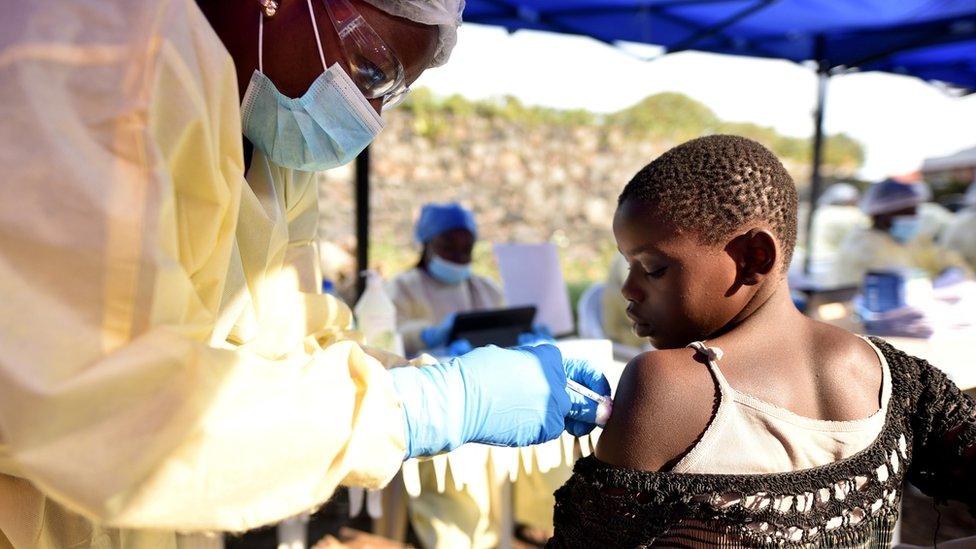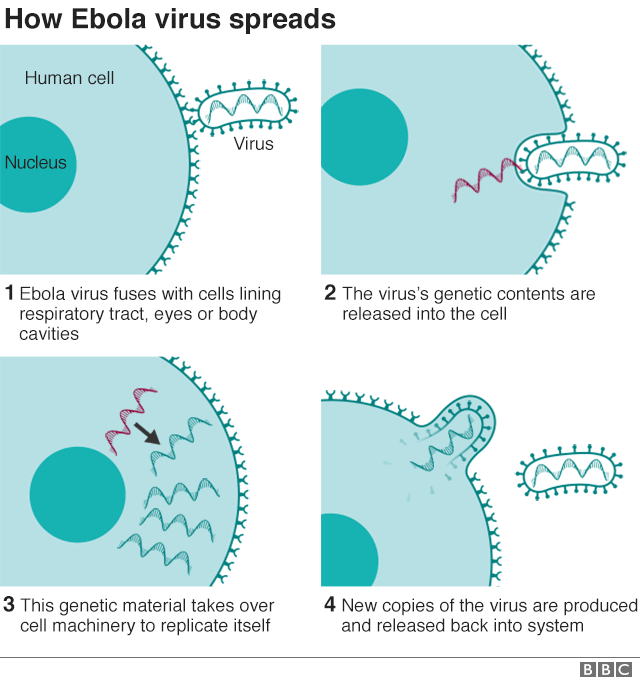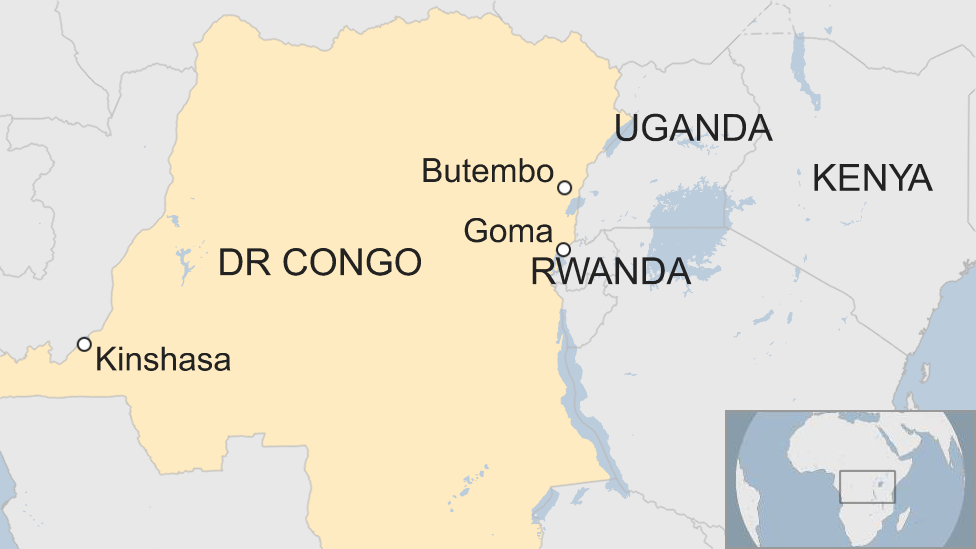Ebola: Your questions answered
- Published

The latest Ebola outbreak, in the Democratic Republic of Congo, has been declared a "public health emergency of international concern" by the World Health Organization.
This outbreak is the second biggest on record and has infected 2,500 people, of which more than 1,600 have died.
The biggest outbreak was the epidemic that ravaged parts of West Africa from 2014 to 2016, killing more than 11,000 people.
You sent us your questions about the virus, which BBC health and science correspondent James Gallagher has answered.
Norman: Where did Ebola come from and when was it first detected?
Ebola was discovered in 1976, when there were two deadly outbreaks of the disease. One was in the Democratic Republic of Congo, the former Zaire, in a village near the Ebola river, hence the virus's name. However, exactly where Ebola comes from remains something of a mystery.
People are not the "natural hosts" of Ebola. And in every outbreak, the virus has transferred to humans from another animal species. Fruit bats are a very likely culprit - but this has not been definitively confirmed.


Masitano: What are the factors contributing to the mistrust of healthcare workers in DR Congo and to what extent is this a challenge?
Mistrust is a massive problem. It stems from decades of conflict in the region eroding faith in local authorities and leading to widespread mistrust of foreigners.
The motives of healthcare workers and their security escorts (needed because of the risk of violence) are questioned.
And a survey, in The Lancet Infectious Diseases, external, suggests one in four people in DR Congo does not even believe Ebola is real.
Rumours Ebola has been made up for financial gain (such as through organ trafficking) circulate.
This is all dangerous because Ebola can be tackled only by working with the community.
A third of deaths are in people's homes - where they risk spreading the disease - rather than in Ebola treatment centres.
And tracing contacts of Ebola patients is impossible if people do not cooperate.
Justin: Why are there no travel restrictions?
Simply because the World Health Organization thinks restrictions could make things worse.
It said it was essential to avoid "punitive economic consequences" of imposing trade and travel restrictions and it was necessary to protect people's livelihoods.
"It is also crucial that states do not use the public health emergency of international concern as an excuse to impose trade or travel restrictions, which would have a negative impact on the response and on the lives and livelihoods of people in the region," said Prof Robert Steffen, who chairs the WHO's Emergency Committee.
Instead of closing borders, there is extensive screening to detect people who may have been infected with the disease.
In the past week, more than 2.1 million screening tests (which involve a temperature test to detect fever) were conducted on major transport routes.

What is Ebola?

Ebola is a virus that initially causes sudden fever, intense weakness, muscle pain and a sore throat
It progresses to vomiting, diarrhoea and both internal and external bleeding
People are infected when they have direct contact through broken skin, or the mouth and nose, with the blood, vomit, faeces or bodily fluids of someone with Ebola
Patients tend to die from dehydration and multiple organ failure

Ali: Why can't the vaccine be made a mandatory for everyone?
One issue is the amount of vaccine available.
Instead, a process called "ring vaccination" is used.
If someone is diagnosed with Ebola, then everyone they have come into contact with, and, in turn, everyone they have come into contact with, is offered the Ebola vaccine.
People at high risk - such as doctors and nurses treating patients - are also given the jab.
Maike: How and where can you receive the vaccination against Ebola?
If you're not one of the people above, then you can't. The vaccine still hasn't been commercially licensed, so it is being used on the front line of the outbreak in DR Congo only.
Gordon: I am due to fly into DR Congo, via Goma. Should I go?
It is best to check the current advice being issued by your government.
The UK's Foreign and Commonwealth Office, external advises "against all but essential travel" to Goma. And it advises against all travel to some other parts of DR Congo.


Emily: Has it been disproven that the Ebola outbreak originated from eating bushmeat?
The first person to catch Ebola in an outbreak will have caught it through close contact with the blood, organs or other bodily fluids of infected animals.
This could include fruit bats (potentially the natural reservoir of Ebola), chimpanzees, gorillas, monkeys, forest antelope or porcupines which can all be infected with and killed by Ebola. Preparing or eating infected bushmeat is a potential source of infection.